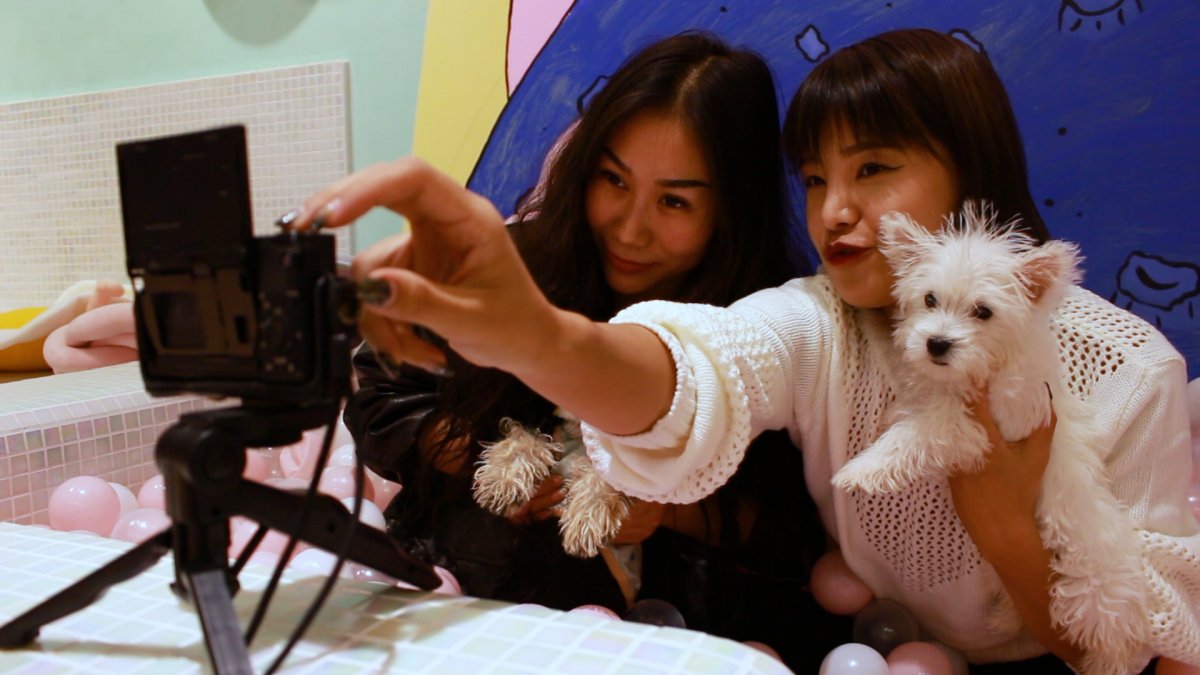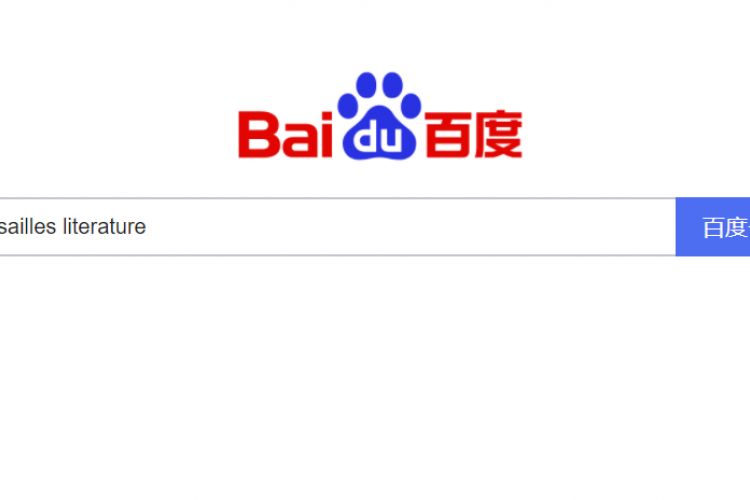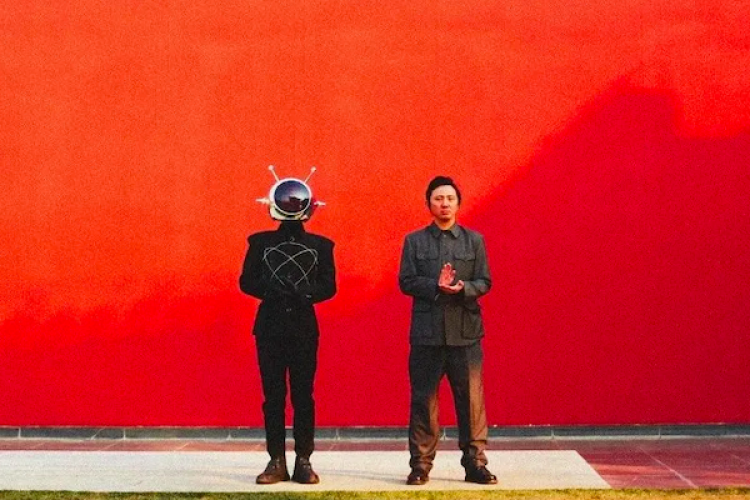Chinese Selfie App Meitu Faces up to ‘Natural Look’ Beauty
Doe-eyed girls with slender faces used to be all the rage on the Chinese internet. Not anymore.
The popularity of that look – typically associated with the country’s sizable army of web celebrities or wanghong – is giving way to a trend toward a more sophisticated, more natural concept of beauty among certain segments of Chinese consumers.
The shift is particularly important to those tech companies marketing photo editing apps, such as Meitu, who must roll out new features to sustain their user base and attract new users.

To succeed, companies like Meitu will need to keep consumers like Li Mengfei in mind. By day, the 25-year-old is a full-time social media content editor; by night, she goes by the name “Afei,” and works as a part-time key opinion leader (KOL).
Stores and restaurants pay KOLs like her to visit their locations, take photos of themselves having fun, and then post them online.
“One or two years ago, Chinese people thought very big eyes, very thin face – that was the internet celebrity (wanghong) look,” Afei said in an interview with TechNode that took place while she was on assignment at a trendy pet store in Beijing’s Chaoyang District. “But now, there’s a more high-end internet celebrity look.”
To be sure, the move to “natural” doesn’t apply to everyone, and it doesn’t mean people don’t want to photo edit away pimples and wrinkles. Women – and for the most part it is women – still want to look flawless, but they want a flawless version of their own face. For many, Meitu is no longer the photo app du jour.
It’s almost as if Meitu’s fame is its undoing – almost everyone has used it and the results have, for some, become predictable. It has become boring.
Meitu fights back
Meitu is aware of the trend. “Our users’ aesthetic standards are shifting to a more natural one,” a representative of Meitu said in response to questions from TechNode. The representative pointed to the company’s BeautyCam product, which it said aims to offer “better photo effects by enhancing tech support including filters, augmented reality elements, and user interface.”
In addition to the selfie beautification app BeautyCam, the product lineup of the company and its related units include photo editing tool Meitu Xiuxiu; instant video beauty app Meipai; and one-touch make-up app MakeupPlus.
In late September, the company rolled out a texture-enhancing feature which would “assign an image with aesthetic value” and generate “harmonious and natural” results, according to Meitu’s official introduction to the feature.
Meitu also appears to be betting on technology. In August, Meitu’s R&D unit MTlab beat out competitors backed by Tencent and Lenovo to win the first prize in a leading AI-driven dermatology competition, the International Skin Imaging Collaboration Challenge.
As one of the earliest Chinese selfie apps, Meitu quickly conquered the Chinese market, earning it a market valuation of more than USD 8 billion just three months after it listed on the Hong Kong exchange in late 2016.
According to Meitu’s latest financial results, the company’s total monthly active user numbers dropped by almost 16 percent from 415.8 million recorded at the end of 2017, to just over 350 million at the end of June. In the case of its Meipai app, users numbers plunged by more than 55 percent.
The company’s path back to success may not be easy. As it strives to satisfy increasingly fast-changing aesthetic standards among Chinese consumers and the notoriously fickle fashion industry, foreign photo editing apps are also gaining traction in China.

Valerie Chow, a New Zealander who was born and raised in China and who works as a freelancer fashion blogger in China, described Meitu’s style as promoting “fair skin, slim body figure, gentle personality, double-lid, big eyes, tall nose, long hair, light makeup, and a fairy-like aura.”
“These are the features that most Chinese people would typically mention when referring to a [natural] beauty,” Chow said.
Traditionally, Meitu has offered editing effects to produce doll-like appearances, but is increasingly facing intense criticism from netizens in China for producing photos that have been excessively edited to the point where they’re “unnatural.”
For evidence of China’s recent embrace of natural beauty, look no further than the June campaign “Bare Skin Project/Going My Own Way” for China by Japanese brand SK-II. According to quotes from celebrities participating in it, the campaign hoped to convey a more confident image of female power by showing bare skin directly.
SK-II has developed a reputation for being in close sync with Chinese women’s self-perception. In 2016, it launched a popular marketing campaign that explored the issue of so-called leftover women – women aged over 27 who are widely treated with disdain and dismissed as being too old to get married. The campaign struck a chord – SK-II’s video received more than 1.3 million hits in the first 24 hours after its release.
Raised eyebrows
“In China, sometimes people raise eyebrows when hearing the name Meitu,” said Li Lilin, of millennial-focused market research company Youthology. “I would say there is a Meitu stereotype.”
Li said in the pursuit of a more “natural” look, what people are actually saying is that they want something different from wanghong style. “Here ‘natural’ means ‘comfortable’,” she said.
KOLs are also turning away from Meitu. One popular beauty and fashion blogger, who goes by the name Yuanlaishiximendasao, recommends her followers use Meitu competitor Qingyang Xiangji, saying that apps able to highlight natural effects will beat apps that can only do “studio effects worth only half a yuan (USD 0.07)” – a remark apparently aimed at Meitu.
The results are telling when one types the name “Meitu” in Chinese into the iOS App Store search function: Pinned on top of the search results is an app-recommendation post “How to be a Selfie Pro.” For adjusting the light in portraits for true effect, the app store story recommends Facetune2, which is free, and MaxCurve, which sells for RMB 18. Meitu comes further down the list after Snapseed, a Google-owned editing app. The English translation of Meitu is “beautifying a photo.”
Facetune, an Israeli photo editing app that aims to provide natural effects with improved skin texture, has fast become a leading competitor of Meitu in China in the portrait editing market.
While Crystal Yin, who works in international fashion retailing, says she sometimes uses Meitu’s BeautyCam for casual use when out with friends, her photo editing app of choice is Facetune. “I wanted to look natural, so I switched to Facetune,” she said.
A young cosplay enthusiast who asked to be called by her cosplay name, Niannian, said even though people in the cosplay community frequently apply heavy makeup, Meitu is rarely the photo editing app of choice for them. Instead, Photoshop is preferred because it can make subjects appear natural “like people in real life.”
Niannian is not optimistic about Meitu’s long-term prospects in what she describes as a mature market where tech barriers are relatively low and needs change fast. “Being a trend-follower may not be enough,” she said.
To watch a video report of this story, click here.
Additional reporting: Cassidy McDonald
Read about all the latest tech news and advancements in China right here.
Photos: TechNode/Cassidy McDonald, Meitu








